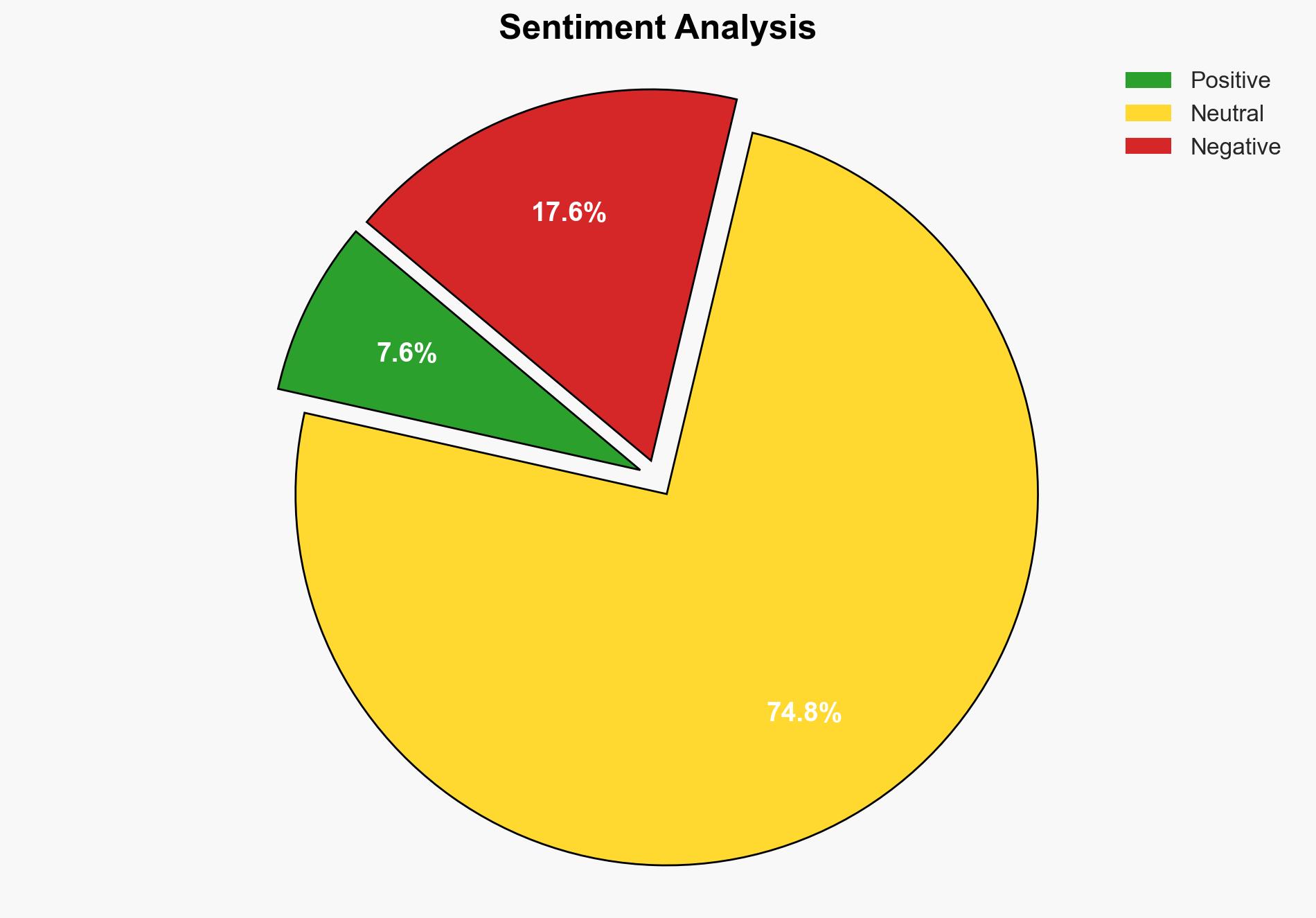Gaza food aid scarce after Israel halts entry – BBC News
Published on: 2025-03-05
Intelligence Report: Gaza Food Aid Scarce After Israel Halts Entry – BBC News
1. BLUF (Bottom Line Up Front)
The halt of food deliveries to Gaza by Israel has led to a sharp increase in food prices, exacerbating the humanitarian crisis. The situation is further complicated by accusations of misappropriation of supplies and political tensions. Immediate action is required to address the humanitarian needs and prevent further escalation.
2. Detailed Analysis
The following structured analytic techniques have been applied for this analysis:
SWOT Analysis
Strengths: International awareness and pressure may lead to diplomatic interventions.
Weaknesses: Limited access to resources and dependency on external aid.
Opportunities: Potential for international mediation to facilitate a ceasefire extension.
Threats: Escalating tensions could lead to increased violence and further humanitarian crises.
Cross-Impact Matrix
The halt in food aid affects not only Gaza but also has implications for neighboring regions. Increased instability could lead to refugee movements and impact regional security dynamics.
Scenario Generation
Best-Case Scenario: A negotiated ceasefire extension allows for the resumption of aid deliveries, stabilizing food prices.
Worst-Case Scenario: Continued blockade leads to severe shortages, escalating humanitarian crises, and potential conflict.
Most Likely Scenario: Temporary relief through international pressure and limited aid deliveries, but underlying tensions remain unresolved.
3. Implications and Strategic Risks
The blockade and resulting food shortages pose significant risks to regional stability and economic interests. The humanitarian crisis could lead to increased international scrutiny and pressure on Israel, while also providing leverage for Hamas in negotiations. There is a risk of further escalation if the situation is not addressed promptly.
4. Recommendations and Outlook
Recommendations:
- Engage in diplomatic efforts to facilitate a ceasefire extension and resumption of aid deliveries.
- Encourage international organizations to increase humanitarian assistance and monitoring.
- Promote dialogue between conflicting parties to address underlying issues and prevent future escalations.
Outlook:
Best-Case: Successful diplomatic interventions lead to a sustained ceasefire and improved humanitarian conditions.
Worst-Case: Prolonged blockade results in severe humanitarian crises and potential conflict escalation.
Most Likely: Temporary relief through international pressure, with ongoing challenges in achieving long-term stability.
5. Key Individuals and Entities
The report mentions significant individuals such as Benjamin Netanyahu, Issam, Issa Meit, Mahmoud Abu Mohsen, and Caroline Seguin. Organizations referenced include the UN humanitarian agency OCHA, and governments of France, Germany, and the UK.




